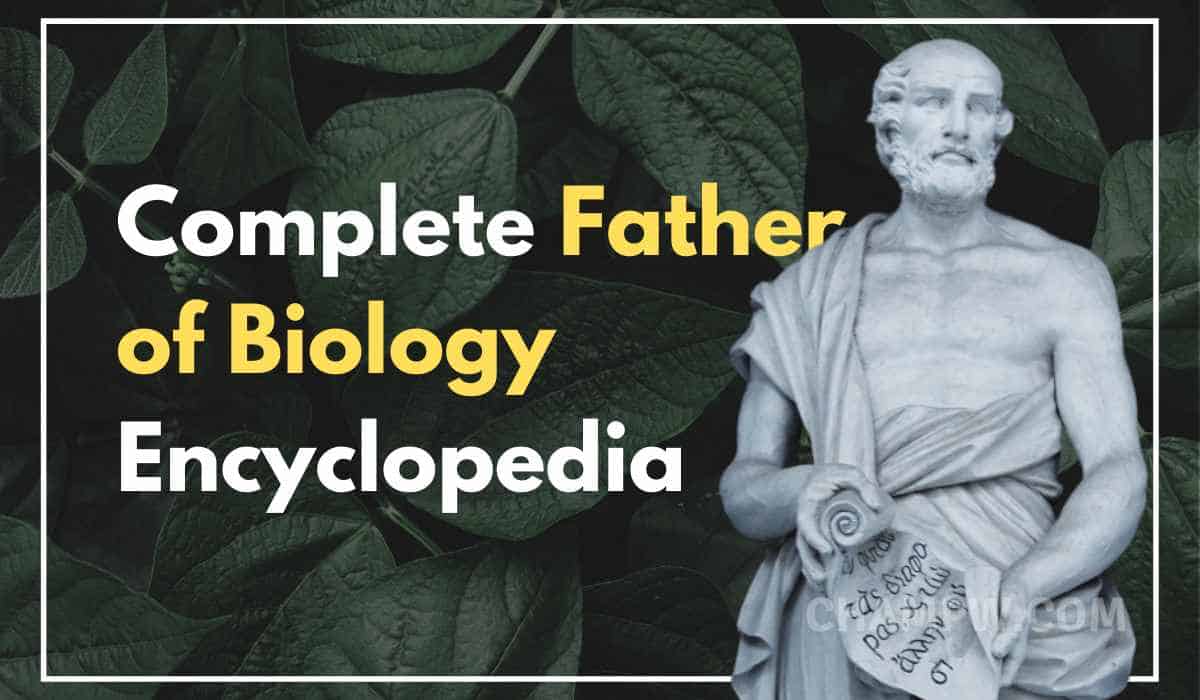You are heading for a quiz competition or competitive exams – Father of Biology is the most asked question. Prepare the complete Father of Biology list. A quick rundown of various parts of Father of Biology Name. In this article, we are giving the complete list of various parts of science and their dads that will help in the readiness of a few contenders just as different competitive fields or exams.
Advancement as a piece of successive information on science occurred in the period of the popular Greek thinker Aristotle (384-322 B.C.). He uncovered his musings about different parts of the life of plants and creatures. Along these lines, Aristotle is called as the Father of Biology. Let us study the rundown of Fathers of various parts of science through this article.
Complete Father of Biology Name Encyclopedia
Science is the investigation of life, living things, and the development of life. Father of Biology Name are the great masterminds who inspired me and you to choose science. The subject science is living things like creatures, plants, organisms, microorganisms, and so on.
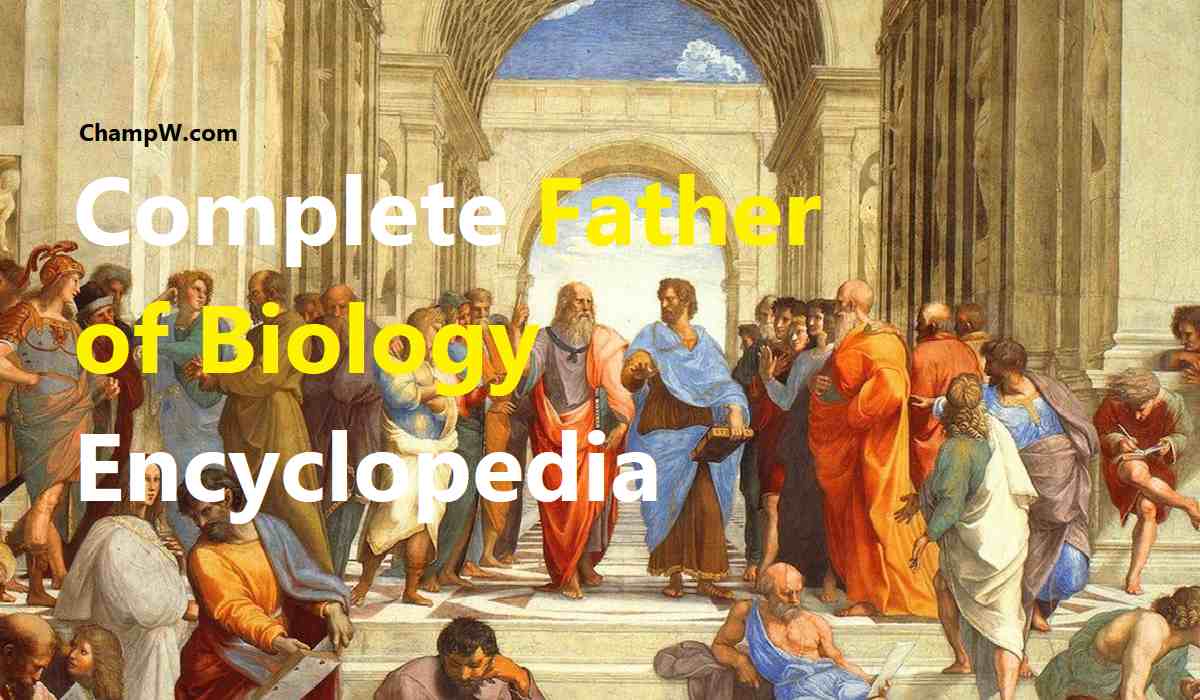
FATHER OF BIOLOGY ZOOLOGY AND BOTANY
The complete list of the father of biology zoology and botany is given below. This is a glance at the list Father of Biology Name to help you remember the names quickly before the exam or quiz. The complete details about each biology department father are shared below. We suggest reading their story to inspire the curious science bud present in you.
| FATHER OF BIOLOGY ZOOLOGY AND BOTANY | |
| Branches of Biology | Father |
| Biology | Aristotle |
| Botany | Theophrastus |
| Bacteriology | Louis Pasteur |
| Botanical Illustrations | Krateuas |
| Comparative Anatomy | Georges Cuvier |
| Cytology | Robert Hooke |
| Eugenics | Francis Galton |
| Genetics | Gregor Mendel |
| Histology | Marie François Xavier Bichat |
| Immunology | Edward Jenner’s |
| Indian Bryology | Shiv Ram Kashyap |
| Indian Ecology | Ramdeo Misra |
| Indian Mycology | Edwin John Butler |
| Indian Phycology | Parthasarthy Iyengar |
| Medicine | Hippocrates |
| Microbiology | Antonie Van Leeuwenhoek |
| Modern Botany | Linnaeus |
| Modern Embryology | Karl Ernst von Baer |
| Modern Genetics | Thomas Hunt Morgan |
| Mutation Theory | Hugo de Vries |
| Mycology | Pier Antonio Micheli |
| Paleontology | Leonardo Di Vinci |
| Plant Anatomy | Nehemiah Grew |
| Plant Physiology | Stephen Hales |
| Taxonomy | Carl Linnaeus |
| Zoology | Aristotle |
ARISTOTLE | FATHER OF BIOLOGY ZOOLOGY
Aristotle was a Greek rationalist and polymath during the Classical time frame in Ancient Greece. Aristotle | Father of Biology Zoology Educated by Plato, he was the originator of the Lyceum, the Peripatetic school of reasoning, and the Aristotelian custom. The great was born in 384 BC. Then died on 322 BC. Can you imagine this great mind used to live before Christ timespan?
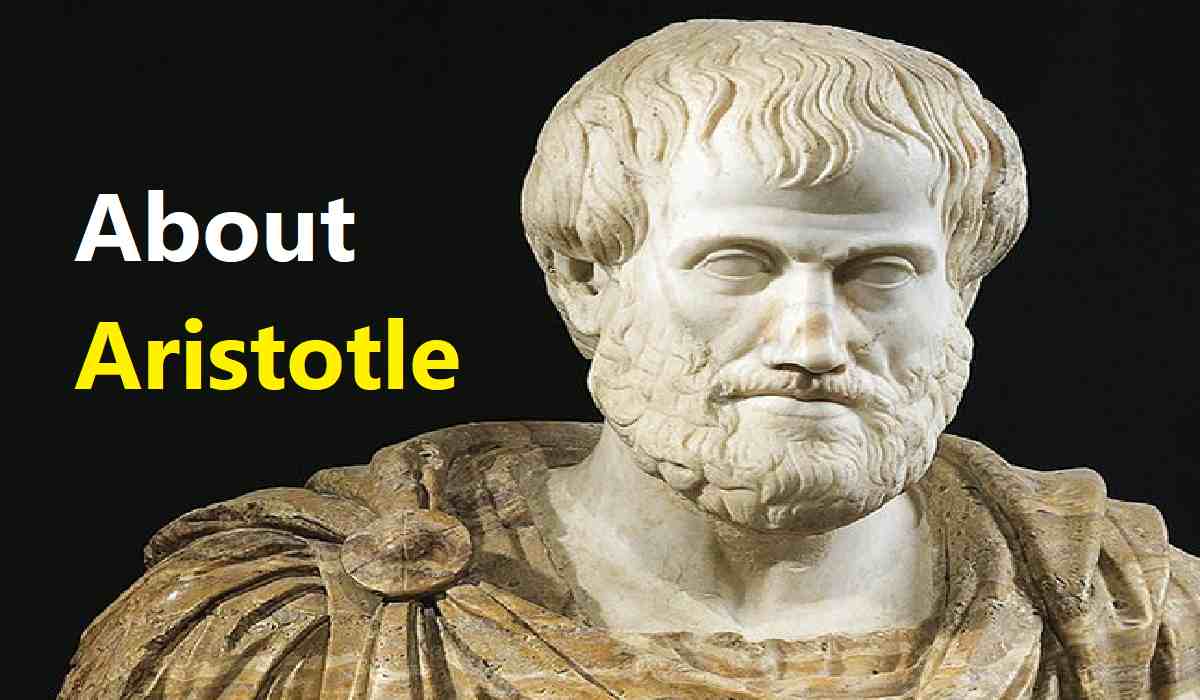
Aristotle (384–322 BC) was a Greek thinker and polymath during the Classical time frame in Ancient Greece. Educated by Plato, he was the organizer of the Lyceum, the Peripatetic school of reasoning, and the Aristotelian convention.
- Born: 385 BC, Stagira, Greece
- Died: 323 BC, Chalcis, Greece
- Notable ideas: Aristotelian philosophy; Syllogism; Theory of the soul; Virtue ethics
- Education: Platonic Academy (368 BC–348 BC)
His works spread numerous subjects including material science, science, zoology, mysticism, rationale, morals, style, verse, theater, music, talk, brain science, semantics, financial aspects, legislative issues, and government.
It is the mark of an educated mind to be able to entertain a thought without accepting it. Aristotle
Aristotle gave a mind-boggling amalgamation of the different ways of thinking existing before him. It was most importantly from | father of biology Aristotle his lessons that the West acquired its scholarly dictionary, just as issues and techniques for request. Therefore, his way of thinking has applied | father of biology Aristotle a remarkable | Father of Biology Name impact on pretty much every type of information in the West and it keeps on being a subject of contemporary philosophical conversation.
THEOPHRASTUS | FATHER OF BOTANY
Theophrastus, a Greek local of Eresos in Lesbos, was the replacement to Aristotle in the Peripatetic school. Theophrastus Father of Botany came to Athens at a youthful age and at first concentrated in Plato’s school. After Plato’s demise, he joined himself to Aristotle who took to Theophrastus in his works. The Plant biologist, Theophrastus is also known as Father of Botany gave great insight into the analysis beyond the human body.
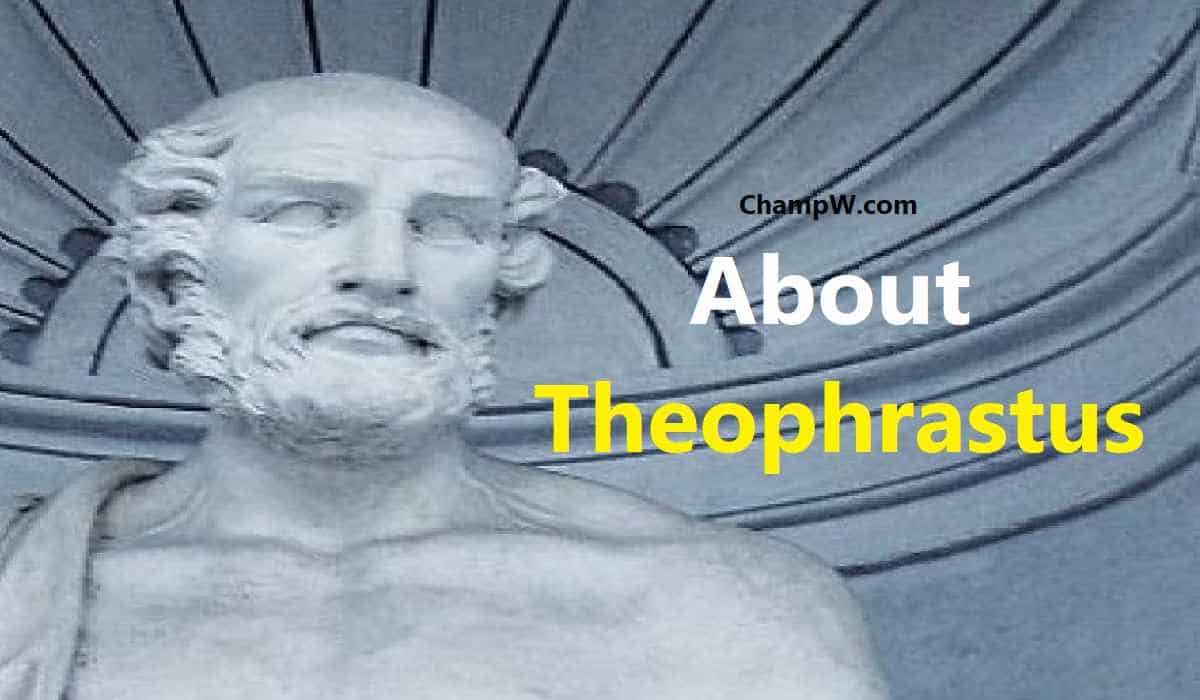
Theophrastus (c. 371 – c. 287 BC), a Greek local of Eresos in Lesbos, was the replacement to Aristotle in the Peripatetic school. He came to Athens at a youthful age and at first concentrated in Plato’s school. After Plato’s demise, he connected himself to Aristotle who took to Theophrastus in his works.
Reader’s Choice: Knowledge Tree facts
At the point when Aristotle fled Athens, Theophrastus took over as leader of the Lyceum. Theophrastus managed the Peripatetic school for thirty-six years, during Father of Biology Name which time the school prospered significantly. He is Father of Biology Name regularly viewed as the dad of plant science for his chips away at plants. After his demise, the Athenians respected him with an open memorial service. His replacement as leader of the school was Strato of Lampsacus.
- Born: Eresos, Greece
- Died: Athens, Greece
- Full name: Tyrtamus
- Notable ideas: Prosleptic and hypothetical syllogisms; Modus ponens and modus tollens
- Parents: Melantas
The interests of Theophrastus were wide-running, stretching out from science and material science to morals and power. His two enduring organic works, Enquiry into Plants (Historia Plantarum) and On the Causes of Plants, were a significant effect on Renaissance science.
Surely, then, if the life in animals does not need explanation or is to be explained only in this way, may it not be the case that in the heavens too, and in the heavenly bodies, movement does not need explanation or is to be explained in a special way? Theophrastus
There are likewise enduring chips away at Moral Characters, On Sense Perception, and On Stones, just as parts on Physics and Metaphysics. In reasoning, he contemplated syntax and language and proceeded with Aristotle’s work on the rationale. He additionally | father of biology in world viewed space as the simple game plan and position of bodies, time Father of Biology Name as a mishap of movement, and movement as a vital outcome of all activity. In morals, he viewed satisfaction as relying upon outer impacts just as on prudence.
HIPPOCRATES | FATHER OF MEDICINE
The great Hippocrates of Kos, otherwise called Hippocrates II, was a Greek doctor of the Age of Pericles, who is viewed as one of the most remarkable figures throughout the entire existence of medication. Hippocrates of Kos (c. 460 – c. 370 BC), otherwise called Hippocrates II, was a Greek doctor of the Age of Pericles (Classical Greece), who is viewed as one of the most exceptional figures throughout the entire existence of medication.
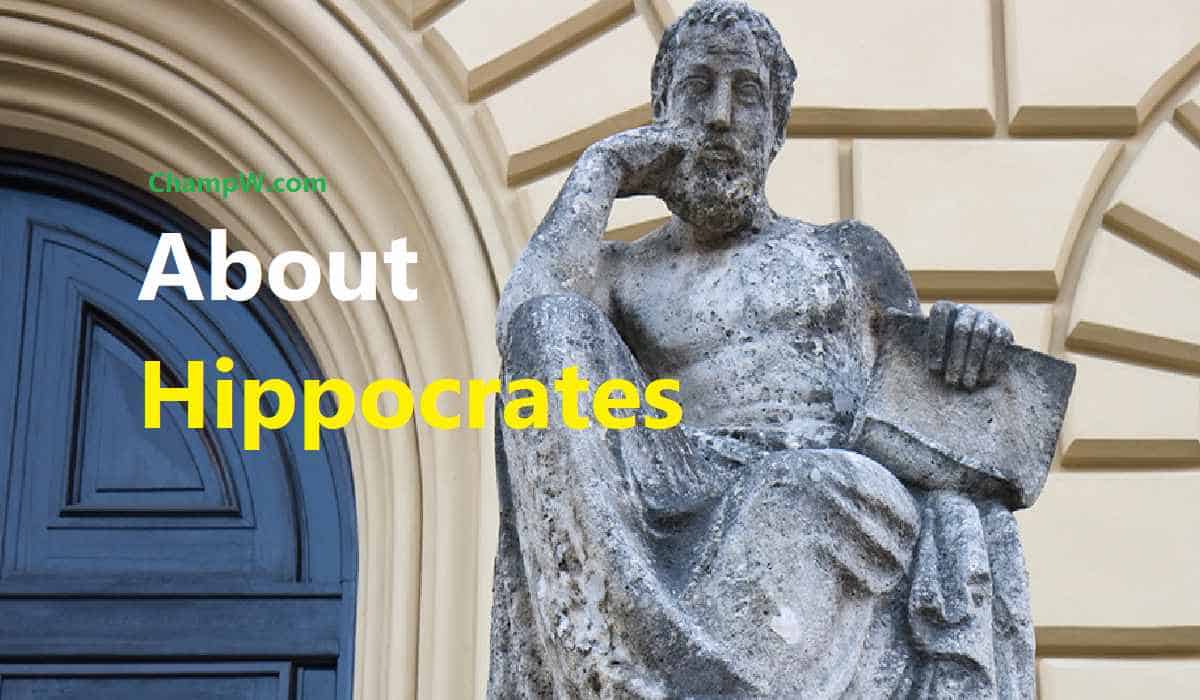
He is regularly alluded to as the “Father of Medicine” in acknowledgment of his enduring commitments to the field as the originator of the Hippocratic School of Medicine.
- Born: Kos, Greece
- Died: Larissa, Greece
- Nationality: Greek
- Title: The Father of Western Medicine
This scholarly school changed Ancient Greek medication, setting up it as a control particular from different fields with which it had customarily been related (theurgy and reasoning), hence building Father of Biology Name up medication as a calling. Be that as it may, the accomplishments of | father of biology in India the scholars of the Corpus, the professionals of Hippocratic medication, and Father of Biology Name the activities of Hippocrates himself were regularly conflated; along these lines next to no is thought about what Hippocrates really thought, composed, and did.
It is thus with regard to the disease called Sacred: it appears to me to be nowise more divine nor more sacred than other diseases, but has a natural cause from the originates like other affections. Men regard its nature and cause as divine from ignorance and wonder…. Hippocrates
Hippocrates is ordinarily depicted as the paragon of the antiquated doctor and credited with authoring the Hippocratic Oath, which is as yet pertinent and being used today. He is additionally credited with extraordinarily propelling the efficient investigation of clinical medication, | father of biology in India summarizing the clinical information on past schools, and recommending rehearses for doctors through the Hippocratic Corpus and different works.
LEONARDO DI VINCI | FATHER OF PALEONTOLOGY
The great Leonardo Di Vinci father of paleontology, known as Vinci, was an Italian polymath of the Renaissance whose regions of intrigue included development, drawing, painting, mold, design, science, music, arithmetic, building, writing, life structures, topography, stargazing, herbal science, fossil science, and cartography. Vinci was born in 1452.
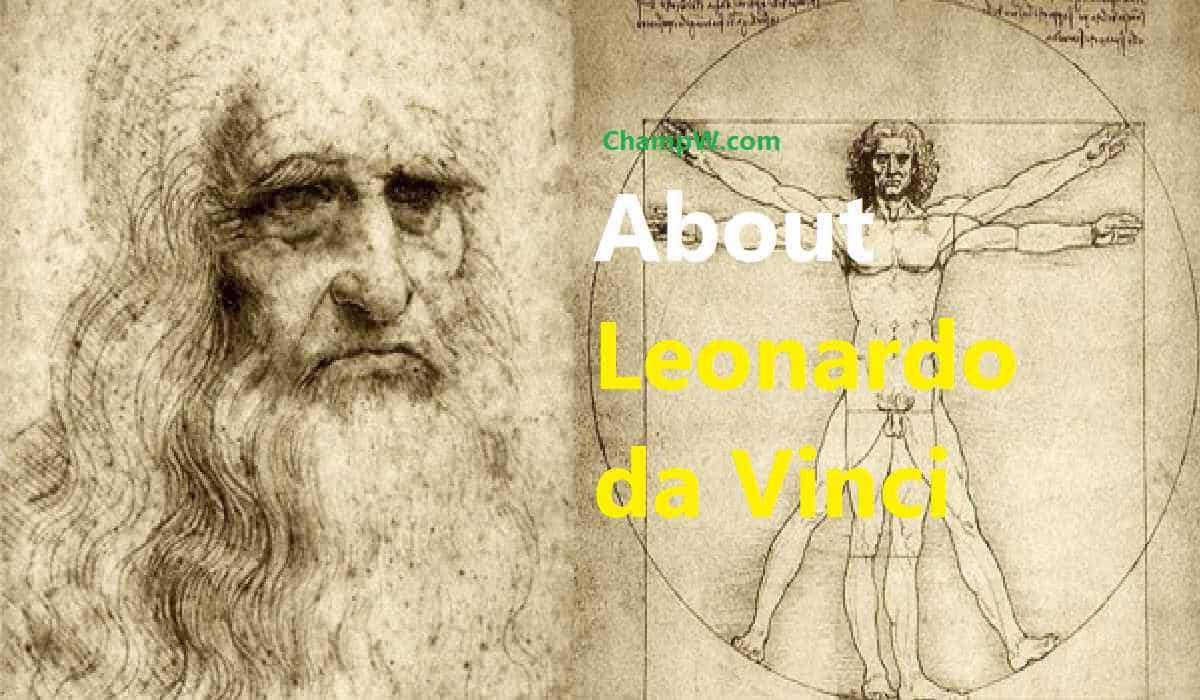
Leonardo began his investigation in the life systems of the human body under the apprenticeship of Andrea del Verrocchio, who requested that his understudies build up a piece of profound information on the subject.
- Born: 15 April 1452, Anchiano, Italy
- Died: 2 May 1519, Château du Clos Lucé, Amboise, France
- On view: Ambrosian Library, Louvre Museum, MORE
- Periods: High Renaissance, Early Renaissance, Renaissance, Italian Renaissance, Florentine painting
- Known for: Art (painting, drawing, sculpting), science, engineering, architecture, anatomy
- Fields: Painting, Geometry, Anatomy
As a craftsman, he immediately became ace of topographic life systems, drawing numerous investigations of muscles, ligaments, | father of biology in world and other obvious anatomical highlights. As an effective | father of biology zoology and botany craftsman, Leonardo was offered Father of Biology Name consent to analyze | father of biology in Hindi human carcasses Father of Biology Name at the Hospital of Santa Maria Nuova in Florence and later at medical clinics in Milan and Rome. From 1510 to 1511 he worked together in his investigations with the specialist Marcantonio Della Torre.
Simplicity is the ultimate sophistication. Leonardo da Vinci
Leonardo made more than 240 itemized drawings and expounded on 13,000 words towards a treatise on life structures. Just a modest quantity of the material on life structures was distributed in Leonardo’s Treatise on painting. During the time that Melzi was requesting the | father of biology in Hindi material into sections for distribution, they were analyzed by various anatomists and specialists, including Vasari, Cellini, and Albrecht Dürer, who made various drawings from them.
FAQs of Father of Biology
1. Who is the Father of Botany?
Ans. Theophrastus is the Father of Botany.
2. Who is the Father of Biology?
Ans. Aristotle is the Father of Biology.
3. Who is the Father of Virology?
Ans. W M Stanley is the Father of Virology.
4. Who is the Father of Zoology?
Ans. Aristotle is the Father of Zoology.
5. Who is the Father of Blood Groups?
Ans. Karl Landsteiner is the Father of Blood Group.
Our Take
We can say that science is life science which is gotten from the Greek word ‘profiles’ which means life and ‘logy’ which means study. That is, it is a study of nature | father of biology zoology and botany that manages life and living beings, the structure of Father of Biology Name life, work, advancement, development, appropriation, and scientific | father of biology in world classification. The term science was first utilized by researchers Lamarck and Triviranus in 1801.
The investigation of living creatures for improved comprehension or expectation of common or other wonders is called Pure Biology or Basic Research or Fundamental Research. They are driven by interest, advancements in science. While the investigation of living creatures to create different innovations or methods to change characteristics or other marvels is called Applied Biology or Applied Research. Save Complete Father of Biology Encyclopedia post for future reference.
